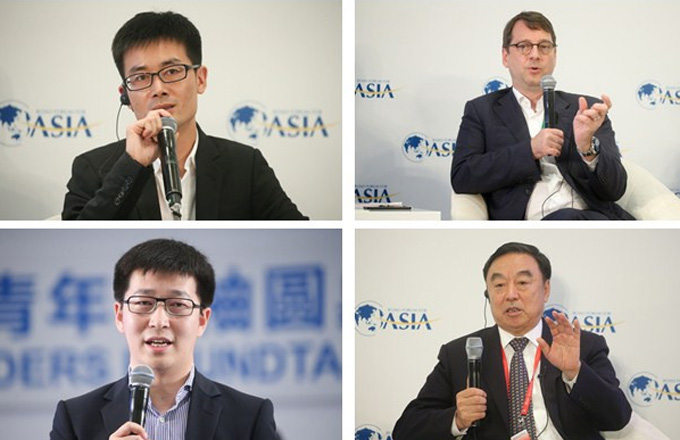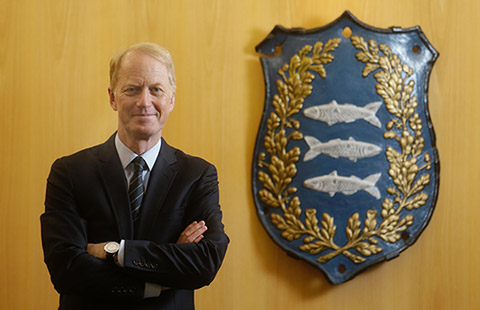COFCO Meat's profit surges
The annual net profit of Hong Kong-listed COFCO Meat Holdings Ltd jumped by 530.8 percent year-on-year to 950 million yuan ($138.18 million) in 2016, thanks to the decline in China's population of sows and the rising price of hogs, the company announced on Monday.
COFCO Meat, a subsidiary of China National Cereals, Oils and Foodstuffs Corp-the country's biggest food trader by sales revenue-said an improvement in hog production efficiency helped lower costs and production volumes rose by 540,000 heads year-on-year.
Ma Jianping, chairman of COFCO Meat, said the company planned to raise annual hog production capacity from 3.5 million at the end of 2016 to 5.5 million in 2020.
"In late 2016, China's sow stocks remained at its lowest level in the past eight years while hog stocks were also at a low level, which should provide strong support for hog prices in 2017," Ma said.
Food consumption is usually a main indicator of an economy and the size of its population.
In China, meat consumption is rising and people are eating a broader variety of meat. Meat products have become more sophisticated and consumers now look more for healthy and convenient food.
COFCO Meat's businesses include feed production, hog production, abattoirs, and the production, distribution and sale of fresh pork and processed meat products.
It also includes the import and sale of frozen meat products, comprising pork, beef, poultry, mutton and lamb.
The company currently operates 47 pig farms, two slaughterhouses and two meat processing facilities in six provinces throughout the country.
Sales volumes of the company's meat import business performed strongly in 2016, with the unit's profit coming at 79.2 million yuan.
"As for the upstream business, we have expanded procurement channels in different countries to satisfy market demand and balanced procurement costs in 2016," said Xu Jianong, managing director of COFCO Meat.
"As Chinese consumers' incomes continue to rise, this sector-meat or animal protein-will be perform strongly," said Ding Lixin, an analyst at the Chinese Academy of Agricultural Sciences in Beijing.
"This is one of the reasons we see a lot of investment by both Chinese and international companies in all of these areas."

















